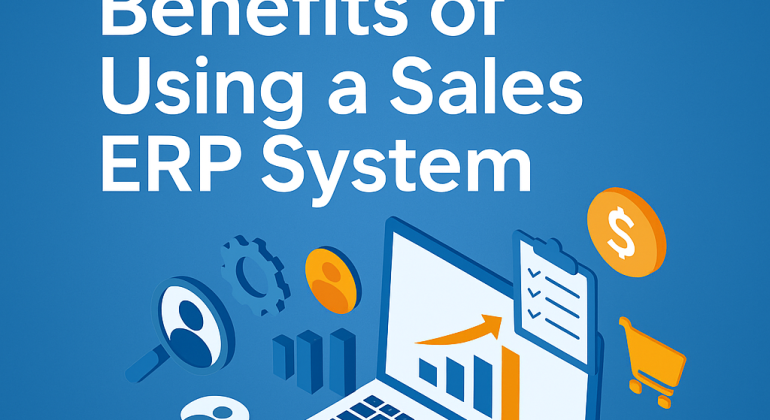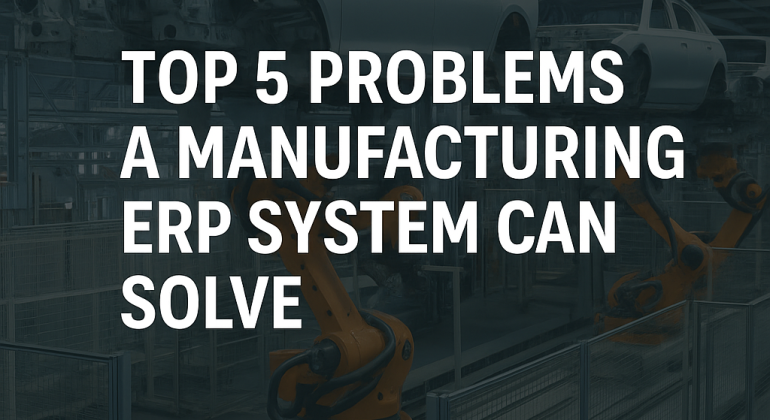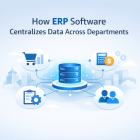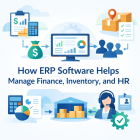10 Powerful Benefits of Using a Sales ERP System
Sales teams face growing pressure to close deals faster, serve customers better, and keep records accurate. But managing leads, customer data, stock availability, pricing, and invoices across different platforms can quickly become messy. This is where a Sales ERP system steps in.
A Sales ERP solution brings all your sales-related processes into one place. It helps your team stay on top of their game by improving visibility, automating tasks, and cutting down errors. Let’s explore 10 benefits of using one.
1. Centralized Customer Information
Instead of scattered spreadsheets and outdated notes, a Sales ERP system stores all customer data in one place. Your team can view complete customer histories, order statuses, payment records, and communication logs in seconds. This leads to faster responses and better relationships with clients.
2. Improved Lead Management
Sales ERP software lets you capture, assign, and track leads from start to finish. You can define follow-up schedules, set reminders, and track each opportunity’s status. This ensures that no lead is lost or forgotten, and follow-ups happen on time.
3. Smarter Quotation and Pricing
With a Sales ERP platform, your team doesn’t have to guess prices or search through old records. The system helps generate quotations based on up-to-date product prices, discounts, and tax rules. This speeds up the process and reduces pricing errors.
4. Real-Time Stock Visibility
Nothing frustrates customers more than confirming an order and then finding out the item is out of stock. A Sales ERP tool is often linked with your inventory system, allowing the sales team to check stock availability in real time. This improves order accuracy and customer trust.
5. Faster Order Processing
Manual order entries take time and are prone to mistakes. Sales ERP systems automate the order creation process. Once a deal is confirmed, the order gets pushed directly into the production or dispatch system, saving time and avoiding duplication.
6. Automated Invoicing and Payment Tracking
Sales ERP tools generate invoices based on approved orders and send them directly to the client. They also track due payments and send alerts for pending collections. This keeps the cash flow healthy and reduces missed payments.
7. Sales Performance Monitoring
Managers can view dashboards that show how each salesperson is performing, which products are selling most, and where delays are happening. This helps with setting targets, rewarding top performers, and improving weak areas. The insights are updated in real time, not days later.
8. Seamless Team Collaboration
When everyone uses the same system, there’s less confusion. Sales, finance, and logistics teams can access the same order details, customer data, and delivery timelines. This avoids communication gaps and reduces internal delays.
9. Better Customer Experience
When your sales team has access to full customer profiles, real-time inventory, and accurate pricing, they can serve customers more confidently. Faster responses, reliable information, and smoother processes leave a positive impression and build customer loyalty.
10. Mobile Access for Field Sales
Sales ERP systems offers mobile apps or cloud-based platforms. This means your team can log in from their phone, check client info, update deals, or send quotations while on the move. It supports field agents and remote workers without slowing them down.
Final Words
Running a sales team without a central system leads to missed opportunities, wasted time, and unhappy customers. But with the help of a Sales ERP software, you get the structure, speed, and insights needed to stay ahead.
Finac ERP helps you simplify your sales process, serve your customers better, and close more deals.
Reach out to Finac ERP and discover how it can power your growth.







Recent Comments